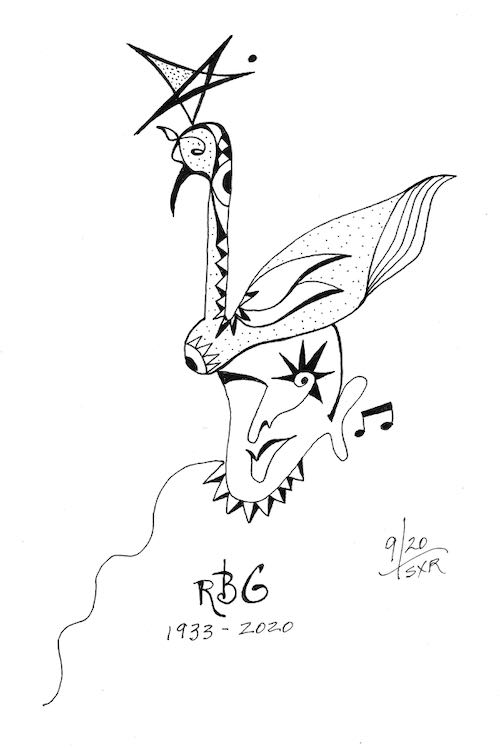If you were to die today, would your last thought be, “Please don’t let Trump replace Ruth Bader Ginsberg before the election”?
Or maybe the reverse: “Please let Trump replace Ruth Bader Ginsberg before the election”?
Either way, the thunder and lightning ignited by justice Ginsberg’s death makes it easy to fantasize that, for some of us, one of those thoughts might color our grand farewell, should it occur any minute now.
That’s how attached to worldly goings on we can be. How much we’re addicted to the belief that people and events determine our sense of well-being.
Hence the fear: if such-and-such happens, or doesn’t, life as I find it may very well be beyond my ability to enjoy, even endure.
Obviously, that phenomenon applies way beyond the immediate implications of the honorable Ginsberg’s departure.
White Americans terrified of losing their cast privilege is a much more pernicious manifestation of humankind’s addiction to so-called worldly reality. One that has fueled generations of grotesquely harmful consequences.
Am I suggesting there is common ground between we who feel our happiness will be impacted by Trump’s Supreme Court pick and we who feel our happiness will be impacted by a family other than white buying the house next door?
In a way, yes. Not in degree. But both share that belief which, among other things, keeps us from seeing the divinity, the sacredness, of everything––including our sameness as members of the human family. It is a belief grounded in the quicksand of delusion that makes us oblivious to the fact that our every judgment is solely the result of how we define our world.
We have such power we’ve yet to recognize. Learning this lesson may be humankind’s most important step toward true health––responding with kindness to whatever comes our way.
I know of a young woman who for some time has been weighing her options for graduate school. Public health and law being the two primary candidates. As justice Ginsberg’s presence has been felt all the more powerfully in recent days, the young woman realized that only the law, practiced in the spirit of justice Ginsberg, could satisfy the call of her heart.
Was it Ginsberg’s death that made the young woman feel this way? Not a chance. That death only revealed to her the depth of integrity she already held within herself. The example of RBG was merely a reminder of how that integrity can blossom.





Yes! On the night of my 63rd birthday, 18 September, it was important for me to redirect my thoughts to all the magnificent work the amazing energy we know as RBG accomplished in her life for the positive evolution of our society. I am now focusing on the inspiration and motivation her very existence can bring to what I, in my small way, can attempt.
Perhaps my next essay on One Man’s Dance will be about this very phenomenon, since on the 18th I officially purchased my first home in over 40 years in which I will live without my beloved. RBG’s death on that day I take as great support for living this next (and possibly last) chapter with robust integrity.